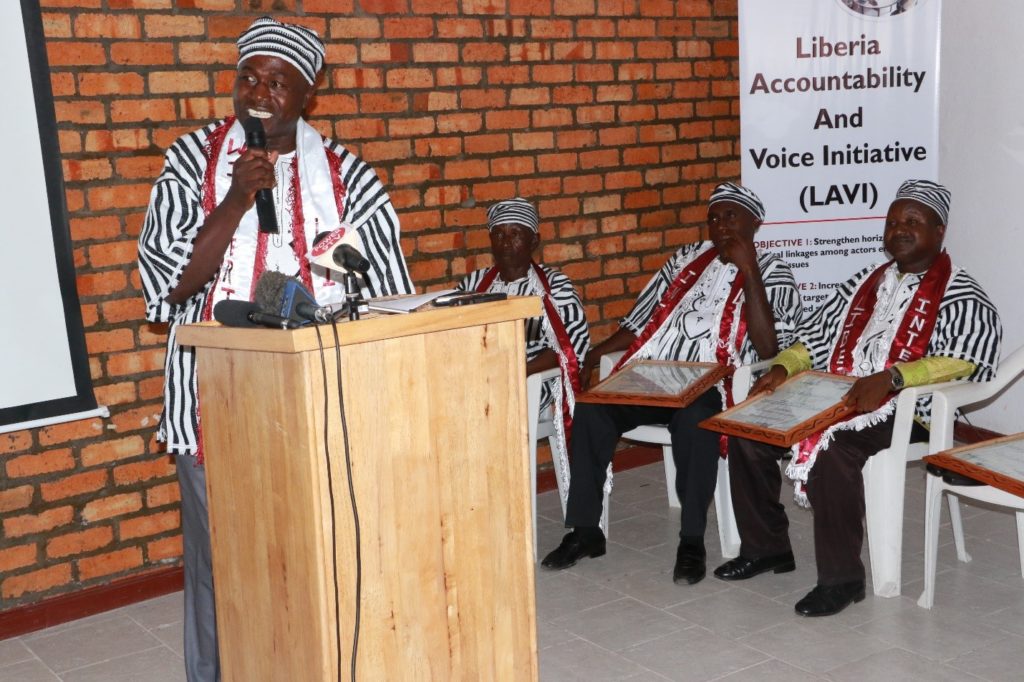This article was published more than 8 years ago.

“Name and shame”
For years, this has been the main approach organizations have used to tackle corruption. Groups employing this tactic work to apprehend corrupt politicians, then broadcast their names publicly to discourage others from committing similar acts. And while some progress has been made, this method has fallen short in rooting out entrenched corruption in countries that need it most. Moreover, “naming and shaming” reinforces the narrative that corruption is inevitable—to a point of normalizing it—by showing the public nothing but dishonest officials over and over. For many, this process feels self-defeating.
“What if we celebrated honesty in a corrupt system?”
This question burned in the minds of Fund grantee Accountability Lab, an organization that works in Liberia, Mali, Nepal and Pakistan to give citizens the tools they need to hold their governments to account. Instead of highlighting the “bad guys,” Accountability Lab wanted to profile positive role models and give them some of the limelight. Their mission was to inspire the next generation to be upstanding leaders that value transparency and ethics. Thus, Integrity Idol was born.
Integrity Idol is a nationwide TV show where individuals compete to be nominated as the most honest public servant in their country. To encourage mass participation, competitors are nominated and voted on by the public. Based on these results, participants are narrowed down to five finalists. These talented few are filmed for episodes that will air on national TV and radio. Finally, citizens vote for their favorite candidate via the Integrity Idol website, or through SMS, to decide who will be crowned the winner in “a national ceremony in the capital.”
Integrity Idol, Now Starring Liberia
With a corruption score of 37/100 according to Transparency International, perception of Liberia’s public institutions is considered poor, largely due to scandals involving predatory investors and politicians. Just last year, it was revealed that top government officials were bribed upwards of $950,000 by a UK mining company seeking to gain the rights to mine in resource-rich northern Liberia.
These conditions made Liberia a perfect fit for Integrity Idol. After successfully debuting in Nepal in 2014, Accountability Lab expanded Integrity Idol into Liberia in 2015, encouraging Liberians across the country to vote for outstanding civil servants. After episodes about the five finalists were created and thousands of votes cast, a seemingly unlikely victor emerged: Jugbeh Tarpleh Kekula, a Registered Nurse at the Liberia Government Hospital in Buchanan. Competing against an education officer and government officials, Jugbeh stood out for her dedication to her community, and her love of helping others through tough times. She also volunteers at a local market to provide information on birth control and family planning.
This year’s winner is Bockarie Sakilla, a pharmacist for a government hospital in Tubmanburg who is putting community members through school and opening medical shops in rural areas:
What’s Next for Accountability Lab
Accountability Lab’s incredible success demonstrates the power of lifting up community leaders who work, often with limited recognition, to better the lives of others. It also shows the hunger of the public to see and engage with positive role models in positions of influence.
Accountability Lab is taking this model and adapting it to recognize activists who are leaders in combating impunity and corruption; they call it the Honesty Oscars. It works on a similar model, but also includes films, pictures, and music.
In addition to giving Accountability Lab Liberia one of its first general support grants, the Fund has also facilitated connections between the Lab and other civil society groups in Liberia and Sierra Leone. As a young organization, these relationships and networks are critical to helping the Lab to share and learn new strategies, and collaborate with its peers.


